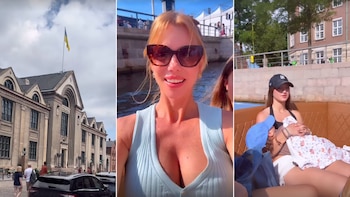The International Paralympic Committee (IPC) announced on Thursday (1 September) that it will not allow individual Russian athletes to participate as neutral athletes at the Rio 2016 Paralympic Games. The decision followed individual requests by more than 175 Russian athletes to compete at the Paralympic Games, which open on 7 September.
The IPC's position is clear, and has been vindicated by the Court of Arbitration for Sport (CAS) Panel’s recent judgement which, amongst other things, rejected the Russian Paralympic Committee's request to require the IPC to accept the entries of individual Russian athletes who could show they were "clean". The judgement also found:
For Paralympic sport to be fair, everyone must play by the same rules prescribed by the IPC, including the IPC Anti-Doping Code.
Therefore, each individual athlete must sign up to submit to his/her National Paralympic Committee's rules, and each National Paralympic Committee must be ready, willing, and able to enforce those rules (including the IPC Anti-Doping Code) effectively within its own national jurisdiction.
The findings of Professor McLaren (which were not disputed by the Russian Paralympic Committee) exposed a longstanding and sophisticated State-controlled doping program in Russian sport (including Para sport).
In such circumstances, it is necessary, proportionate and lawful for the IPC to suspend the Russian Paralympic Committee's membership rights, including the right to enter athletes in the Paralympic Games, until the Russian Paralympic Committee can demonstrate that it is able to enforce the IPC Anti-Doping Code effectively in Russia, without interference from the Russian Government.
In short, the ineligibility of Russian athletes for the Rio 2016 Paralympic Games is the inevitable consequence of the suspension of the Russian Paralympic Committee.
On Wednesday (31 August), the Swiss Federal Tribunal dismissed the Russian Paralympic Committee's request for provisional measures to allow Russian Para athletes to participate in the Paralympic Games pending determination of the Russian Paralympic Committee’s challenge to the CAS decision.
Xavier Gonzalez, the IPC’s Chief Executive Officer, said: "The IPC has considerable sympathy for all of the Russian athletes who are now unable to participate in the Rio 2016 Paralympic Games. Indeed, the main goal of the IPC is to enable Para athletes to achieve sporting excellence and inspire and excite the world. Tragically, however, the Russian authorities have denied their athletes this chance through their actions.
"Once the Russian Paralympic Committee demonstrates that it will be able in the future to enforce the IPC Anti-Doping Code vigorously and effectively, without interference, the IPC will be glad to welcome Russian athletes back to international competition."
20 Years at #1: Your best source of news about the Olympics is www.aroundtherings.com, for subscribers only
Últimas Noticias
Utah’s Olympic venues an integral part of the equation as Salt Lake City seeks a Winter Games encore
Utah Olympic Legacy Foundation chief of sport development Luke Bodensteiner says there is a “real urgency to make this happen in 2030”. He discusses the mission of the non-profit organization, the legacy from the 2002 Winter Games and future ambitions.

IOC president tells Olympic Movement “we will again have safe and secure Olympic Games” in Beijing
Thomas Bach, in an open letter on Friday, also thanked stakeholders for their “unprecedented” efforts to make Tokyo 2020 a success despite the pandemic.

Boxing’s place in the Olympics remains in peril as IOC still unhappy with the state of AIBA’s reform efforts
The IOC says issues concerning governance, finance, and refereeing and judging must be sorted out to its satisfaction. AIBA says it’s confident that will happen and the federation will be reinstated.

IOC president details Olympic community efforts to get Afghans out of danger after Taliban return to power
Thomas Bach says the Afghanistan NOC remains under IOC recognition, noting that the current leadership was democratically elected in 2019. But he says the IOC will be monitoring what happens in the future. The story had been revealed on August 31 in an article by Miguel Hernandez in Around the Rings

North Korea suspended by IOC for failing to participate in Tokyo though its athletes could still take part in Beijing 2022
Playbooks for Beijing 2022 will ”most likely” be released in October, according to IOC President Thomas Bach.




